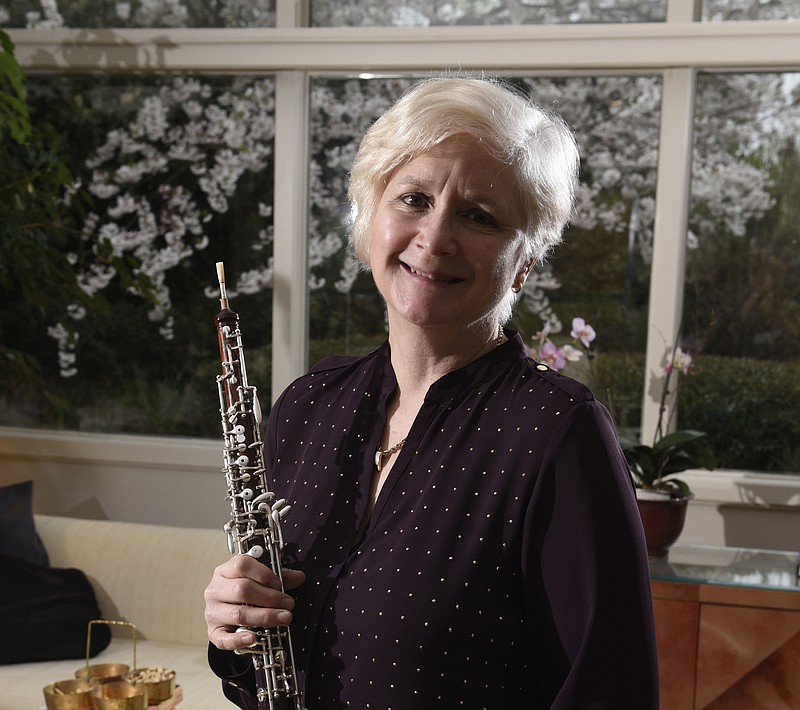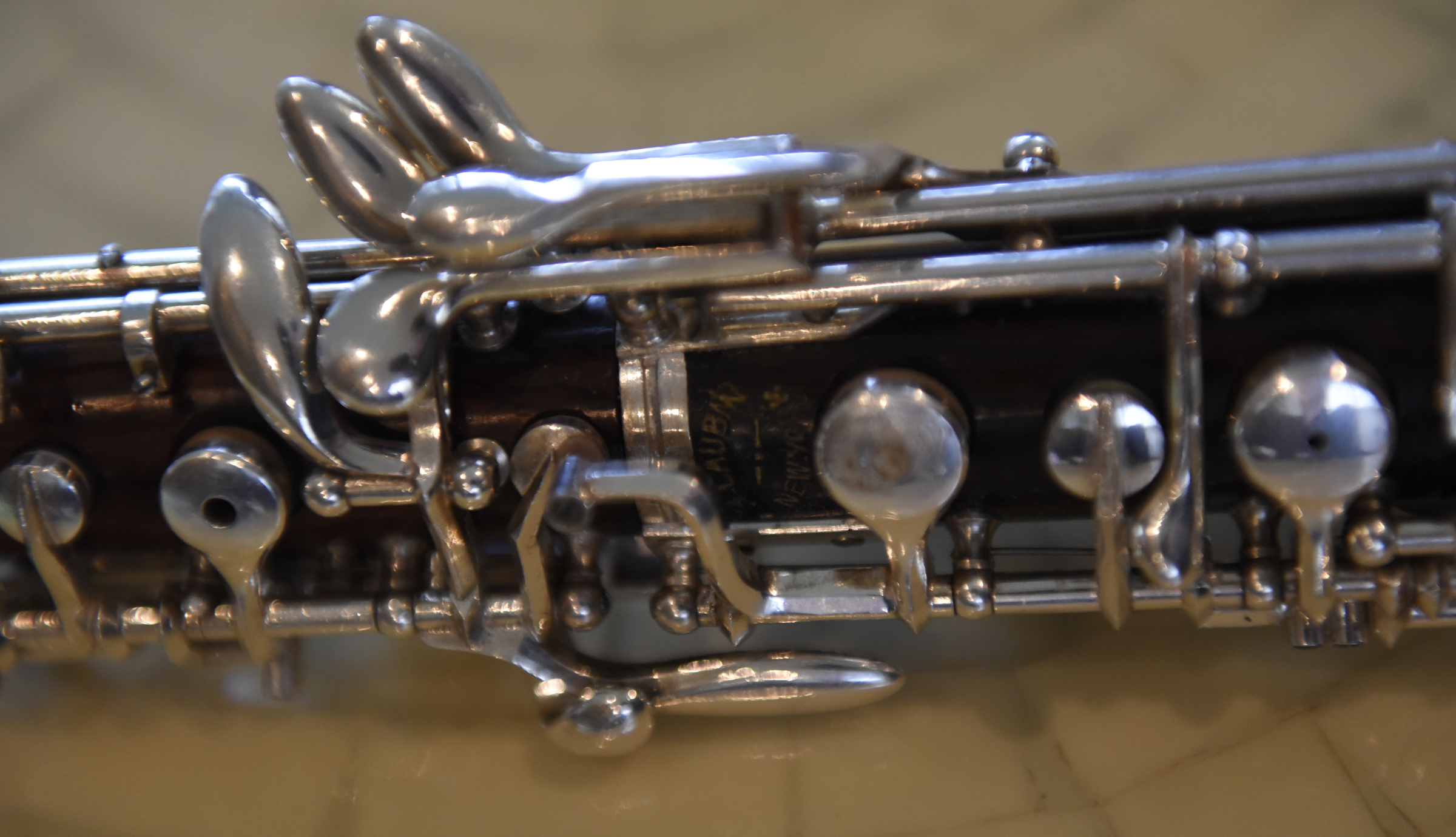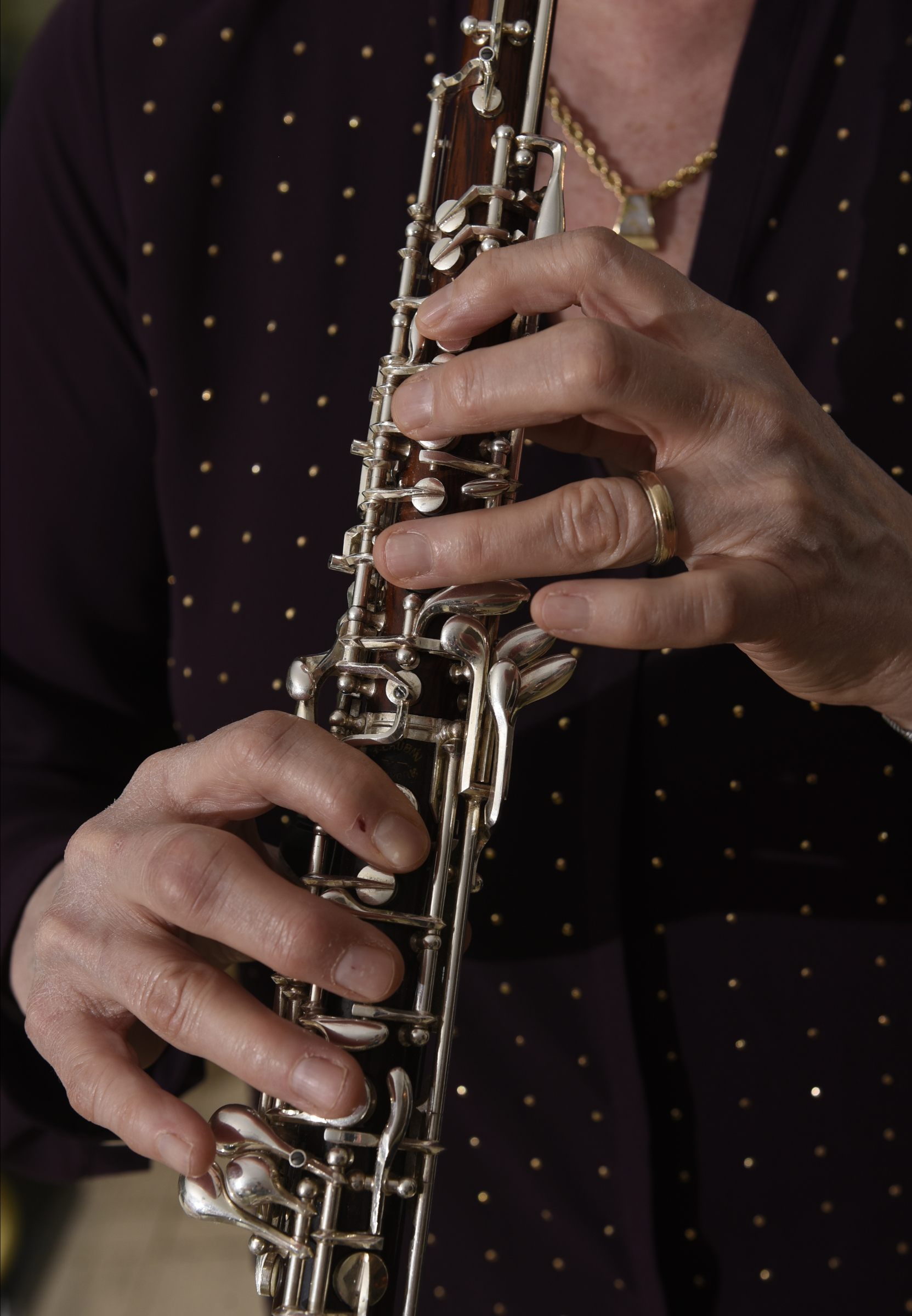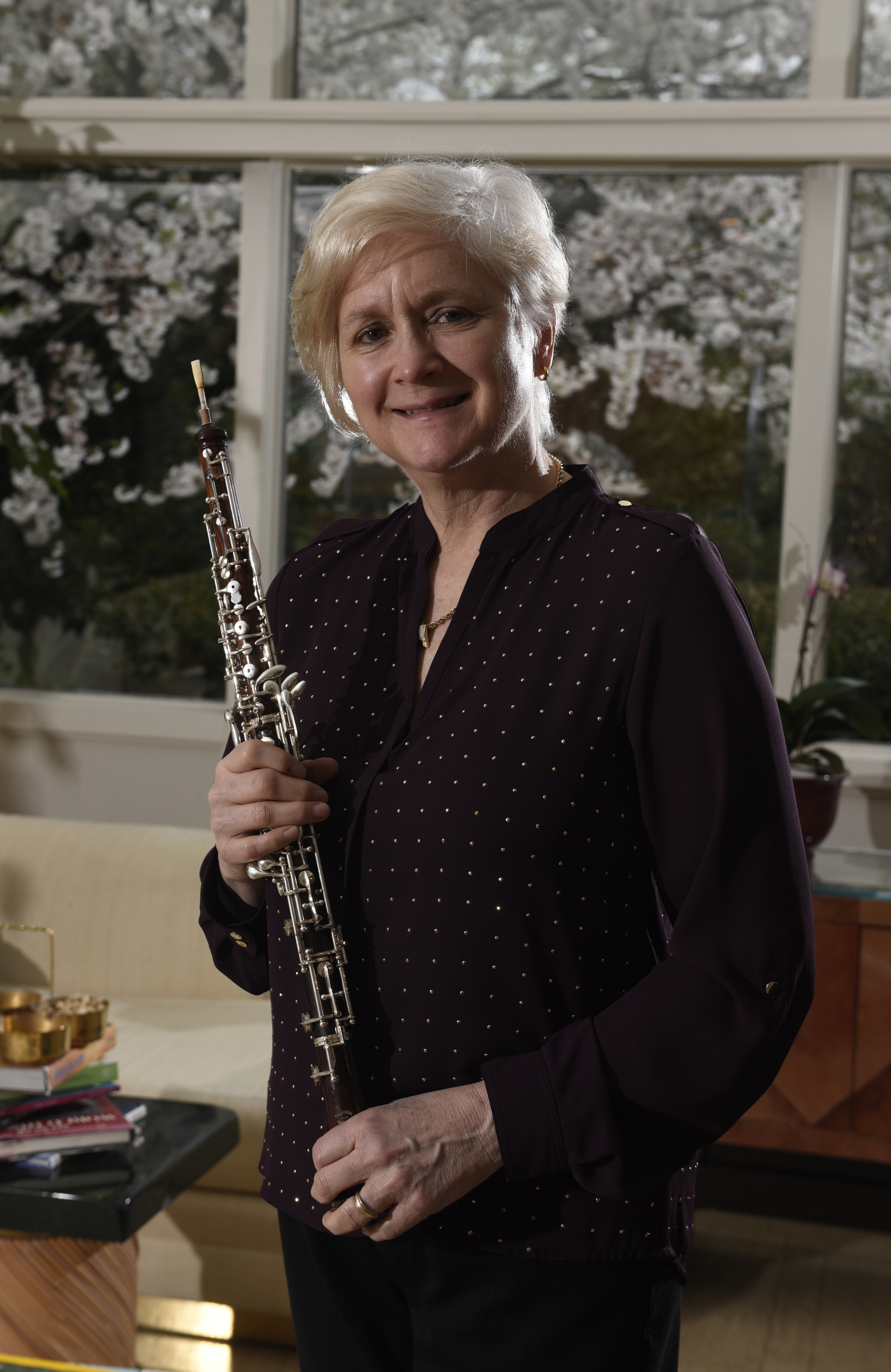About Sherry Sylar
› Sylar was born in Chattanooga and earned her bachelor’s degree at Indiana University and her master’s degree from Northwestern University.› She has been the associate principal oboe of the New York Philharmonic since 1984. She also served as the subsitute principal oboe for several orchestas over the years, including the Boston Symphony Orchestra, the Orchestre Philharmonic de Radio France, the Orpheus Chamber Orchestra and the St. Louis Symphony. › Prior to joining the New York Philharmonic, she was a member of the Louisville Orchestra.
From her seat as associate principal oboe with New York Philharmonic for the last 31 years, Sherry Sylar has seen the world, met heads of state, played some of the world's best music in some of the best venues and done things beyond her wildest imagination.
And it all happened because back at Northside Junior High School in the mid-'60s she thought handmaking her own oboe reeds would be cool.
"Now they are the bane of my existence," she laughs during a visit with her aunt, Betty Stoker, on Missionary Ridge. Sylar's uncle, Jack Stoker, served as president of the Chattanooga Symphony at one time.
Sylar, a 1973 Hixson High School graduate who studied music at Indiana University and Northwestern University, was in town to decompress after a busy year that saw her handle her regular job with the Philharmonic, teach in New York, play with the Chicago Symphony Orchestra as guest principal oboe and, on March 12-13, perform a concerto written specifically for her in San Jose, Calif.,
"I haven't touched my oboe in four days," she says. "I needed a break I guess."
Sylar likes being busy and she loves her job but says the nine months of practice, tweaking, changing, breathing and not breathing she endured while learning the Oboe Concerto, written for her by Pablo Furman, "was like having a baby. It's like this Latin sound. The middle movement is like a tango and very challenging musically.
"It does demand extended techniques like circular breathing. There are two minutes during the second movement that I'm not allowed to take a breath. I had to really train to play the piece."
But the piece pushed her, which she found exciting, she says.
"I do get excited. I love what I do."
She's also very good at it, says Robert Bernhardt, music director emeritus and principal pops conductor with the Chattanooga Symphony & Opera.
"She is a world-class musician," he says, "a sensational oboe player.
"We first met in 1981 when I won the job as assistant conductor with the Louisville symphony. She was second oboe. She played a concerto I conducted and she was absolutely wonderful. But the thing is, one day she was with us and the next she was in New York. It was like going from AA [baseball] to the big leagues overnight."
He's only slightly exaggerating, according to Sylar's version of her New York Philharmonic interview.
"I saw the audition notice in the trade publications and thought, 'I've never auditioned for one of the big orchestras, so why not?'"
About 125 people auditioned in the first round, and a month later she found herself back in New York for round two. She made that cut, then the next and the next. On the afternoon of the second day, she found herself in the personnel office being told she'd gotten the job: "'And, oh by the way, we want you to perform with the orchestra tonight.'
"I had about an hour and a half, so I was scrambling backstage to find a pair of black size 9 shoes and a black dress. It was crazy, but such a blessing."
This was in 1985, and she's been with them ever since.
The New York Philharmonic is considered one of the world's best orchestras, and it also serves as a musical ambassador for New York and the country as a whole, so the orchestra has played in places like Berlin after the wall came down and in India, where Indira Gandhi welcomed them two months before she was assassinated.
"I've seen and done some amazing things," Sylar says.
She also fills in on the slightly larger oboe d'amore and the English horn, as well as stepping in as the principal oboe should the need arise. Sticking with baseball analogies, she likens her role to that of a relief pitcher who never knows when the call from the bench will come, so she must be ready.
"It's very much like that. People don't understand what a professional musician's life is like. I work from morning to night. Not just the 20 hours a week or so I'm onstage."
About 10 hours a week is spent making reeds for her handmade oboes. She spends hours cutting, shaving and shaping bamboo for the reeds, then tying them like a fisherman does lures. If she's lucky, she might get rehearsal time and two performances out of each one.
As a child, Sylar took piano lessons from David Pennebaker at the Cadek Conservatory of Music, then thought the flute was for her. "But everyone was playing flute."
Pennebaker's wife, Linda, played oboe and also was the school's band director. Whenever she had time, she would make reeds in the band office and it intrigued Sylar.
"I was a Girl Scout," Sylar says, "so I thought making reeds was pretty cool, right? Now, they are the bane of my existence."
She's never felt that way about the oboe, however.
"Six months after I started playing, I knew that it was all I ever wanted to do," she says. "It's addictive.
Five of her oboes were handcrafted by Paul Laubin in Peekskill, N.Y., who only makes between 10 and 20 each year - his website indicates a wait time of eight to 10 years for the instruments, which cost almost $14,000. He creates all the wood and silver-plated keys and rails himself, and Sylar laughs when she says they've become close - like some people with their favorite mechanic.
"I take him to dinner for his birthday," she says.
Her current oboe is made of cocobolo - an orange/reddish-brown wood from Central American hardwoods -and is called "two hearts" because of a pattern in the grain of the wood. Oboes, she says, have a shelf life of between five and 10 years because of the moisture they are exposed to through constant playing so, unlike a violin, they don't get better with age.
Teaching has become a passion for Sylar as well, and, at this point in her career, her biggest goal is "to be in the audience when one of my students performs with one of the major orchestras."
"I believe paying it forward is important," she says. "I'd also like to see music and arts return to public schools. It's so important."
Contact Barry Courter at bcourter@timesfreepress.com or 423-757-6354.



